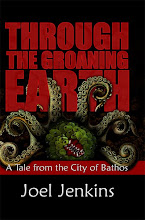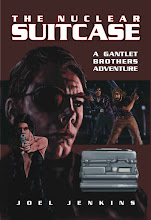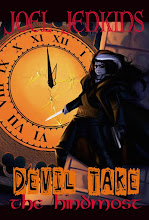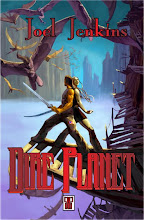Recently I've finished a draft for
The Artificial Woman--my second space opera story featuring Captain Aaron Barclay and the crew of the
Scavenger. When I first began writing the Barclay Salvage stories I considered the captain of the
Scavenger, Aaron Barclay, the central character and that everyone else was there as a supportive character in his adventures.
As I began writing
The Investment (which appeared in
Dark Worlds #1--pick up a digital or hard copy
here!) I began to realize that this was not so. As I wrote
The Artificial Woman the crew of the
Scavenger made it painfully clear that they were in no way secondary characters and that they had agendas of their own.
In fact, not all the crew members are the same in
The Artificial Woman, which takes place prior to the events of
The Investment. So, without further ado, let me introduce you to the crew of the Scavenger.
 Cullen Hanniger
Cullen Hanniger- the very irritable, but very brilliant engineer of the
Scavenger.
Tabitha (Model Designation TAB1-18-20-969391-12-2125)- She's an artificial life form, a robot, and the titular character of the story. Though not technically a member of the crew at the time of
The Artificial Woman she does come into contact with Aaron Barclay and his crew during the course of events. How she later replaces Ursula Vench as the co-pilot of the
Scavenger is a story yet to be told.
 Hank-
Hank- The Security officer of the Scavenger does double duty on the gun turret. It's not that big of a crew after all. He's a Pagouline and his quadruple set of eyes stalks makes him very good at watching his back, as well as the backs of the other crew members.
 Aaron Barclay-
Aaron Barclay- The Captain of the
Scavenger with a soft spot for a person in distress.
 Ursula Vench
Ursula Vench- Copilot of the Scavenger who totes a scatter gun, and whose mercenary tendencies have a tendency to come to the fore. She's got a nickname for everyone, a weakness when it comes to cold hard cash...and a not so secret interest in the captain of the Scavenger.




























